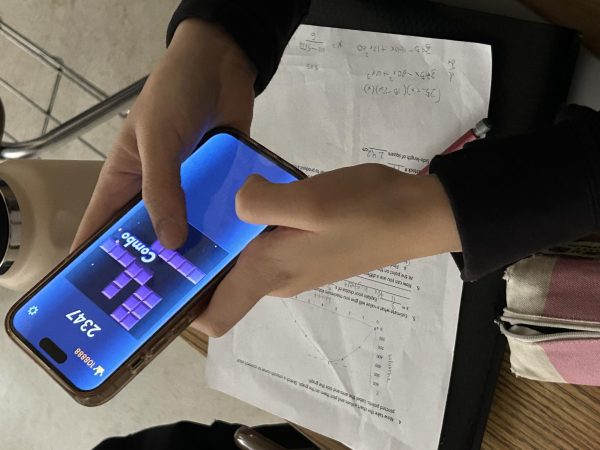Technology in the Classroom
Argument for Technology in the Classroom
Have you ever dreamed of not having to carry around heavy textbooks and materials to class every day? Imagine having access to all of your textbooks, notes and assignments on a laptop or tablet at all times.
Brandon Mensah (11) is an advocate of Ebooks, and he believes that students and teachers should try to eliminate textbooks and unnecessary paper assignments.
“I really hope we start going away from paper and more into technological learning such as Ebooks, using a stylus and tablet and even getting to use our phones in class,” Mensah said.
Mensah is one of the hundreds of students at White Station who would prefer a laptop or tablet over the usual hefty load of textbooks and other supplies that they carry daily.
Reanna Ruddick (12) also supports Ebooks and encourages technology in the classroom.
“Ebooks would be more effective because you can pull out your tablet or computer anywhere and have your textbook and research right in front of you,” Ruddick said.
Biology, anatomy and physiology teacher, Mrs. Kannady, utilizes technology in her classroom daily. She uses Twitter, her blog, a newsletter, powerpoints, phones and computers every day.
“Ebooks would be awesome because students would have 24/7 access, kids would have less back problems if they didn’t have to carry around ginormous books and I wouldn’t have to hear anyone tell me that they forgot their book,” Kannady said.
Technology is becoming increasingly more accessible and ubiquitous, so schools should be more open to incorporating it into the curriculum with a more modern approach.
The Shelby County Schools district needs to further strengthen available resources and access to technology to enable students to better compete in the global world.
Argument Against Technology in the classroom
The bright screen is his center of attention as he gazes intensely; he can not look away, fearing possible failure if he does. Junior Jacob Hatfield stares at his laptop for several hours every week reviewing his class notes posted online. His eyes are strained, sore and seriously irritated.
“We can use laptops and stuff, but taking notes by hand helps you retain the information,” Hatfield said.
Hatfield is just one of many students who have to use technology to access work that has been assigned.
As technology becomes more prevalent in the world, it attributes to classroom dynamics significantly. Many teachers now only use online textbooks and have set aside the traditional hardback books, although not all students are in favor of this transition.
“Looking at a screen for long periods of time like really hurt my eyes so that’s why I prefer reading books than looking at a screen all day.” Kyndle Lee (9) said.
In addition, the continuation of online books can severely impact the limited budget given to each school. An average laptop costs about $500. This does not include the subscription to e-books needed.
AP Language and Composition teacher Adrien Alsobrook uses textbooks in her classroom but also uses online resources when needed; however, she does favor one over the other.
“I actually like having a physical text in front. I think they are easier to interact with.,” Alsobrook said.
Although there is no denying that online books will continue to grow, the classic printed textbooks will always be known as the customary way to read. The growing rate of technology is fatal to the existence of not just school textbooks, but all books.
Related Links:
Schools shift from textbooks to tablets
Your donation will support the student journalists of White Station High School. Your contribution will allow us to purchase equipment and cover our annual website hosting costs.








































